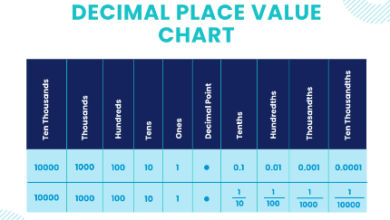Affiliate Programs 101: How They Work and Why They Matter

Affiliate Programs have become very powerful in this digital age, both for businesses and individuals. They allow brands to use third-party promoters to drive sales and amplify brand visibility. Companies can reach wider audiences without having to invest high costs in publicity by giving affiliates incentives to promote their products or services.
How Do Affiliate Programs Work?
Affiliate programs are usually performance-based, wherein affiliates receive a commission based on the traffic they send or sales generated through the merchant’s site. Mostly, businesses give affiliates unique tracking links that could track the actions of referred customers. In this way, companies can tell which affiliates are bringing in sales and compensate those affiliates fairly. Affiliates could showcase their products on blogs, social networks, or through email, whatever best fits their audience.
There is a mutualistic relationship between the merchant and the affiliate. Merchants benefit by reaching a great audience, while affiliates have a potential passive income stream when promoting the products they support. This win-win situation builds a collaborative environment where both partners try to work together for common goals that, in turn, bring about sales and increase brand growth.
Types of Affiliate Programs
There are a few kinds of affiliate programs, all of which work best with different marketing strategies. Pay-per-sale, or PPS, is the most common model, whereby affiliates receive a commission for every sale they bring in with their referral. Pay-per-click, or PPC, lets affiliates earn revenue based on how many clicks they provide, regardless of whether or not a sale happens. The last one is pay-per-lead, or PPL, which pays affiliates for generating leads, such as sign-ups or inquiries, on behalf of the company offering the product or service.
Each model, therefore, offers advantages that depend upon business goals and marketing strategies where a decision would need to be made. For example, sales-oriented companies find PPS models ideal, while companies that want to generate website traffic may find PPC more effective. Knowing what types of programs exist allows the business to choose a model that best suits its needs and the objectives of the target audience.
Read also What Is The History Of Tent Pegging?
Benefits of Affiliate Programs
Affiliate programs have big benefits for both merchants and affiliates. To businesses, this means cheaper marketing with very few risks. Because the commission is paid only whenever a sale is made, it allows the company to grow its marketing budget more effectively. Moreover, affiliate programs allow brands to reach niche markets that will be very hard to target with traditional advertising.
For affiliates, these programs turn content and expertise into hard cash. Affiliates passionate about the products they promote interact easily with their followers on a more personal level. Authenticity usually creates better conversion rates because audiences are generally willing to act upon trust in recommendations from those they already follow. Affiliates can diversify their income streams through multiple brand partnerships, increasing their earning potential.
The Importance of Tracking and Analytics
Successful affiliate programs find much of their juice in tracking and analytics for performance evaluation. Advanced tracking tools will let one monitor which affiliates are driving sales, what kind of products are popular, and where one needs to make improvements. In sum, it optimizes marketing strategies, ensuring affiliates get paid well.
Analyzing performance metrics would also make it possible to understand the topmost-performing affiliates and how to establish closer relationships with them. If support and resources are provided to high-performing affiliates, businesses will maximize their return on investment. Regularly reviewing how affiliates are doing can show you patterns and ideas that help you improve your products and marketing strategies.





